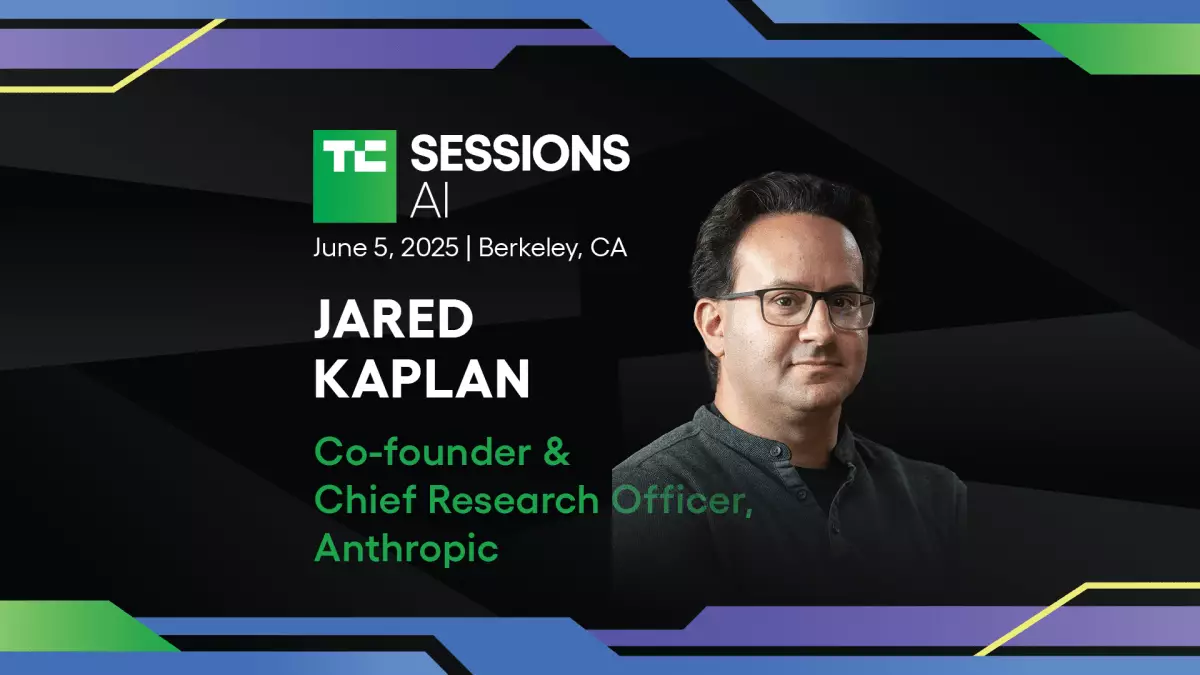In the rapidly evolving world of artificial intelligence, few names resonate as strongly as Anthropic. This innovative company is now poised to capture the spotlight, thanks to its co-founder and Chief Science Officer, Jared Kaplan, who will be speaking at TechCrunch Sessions: AI on June 5 at UC Berkeley’s Zellerbach Hall. With a background steeped in theoretical physics and extensive experience in AI development, Kaplan is uniquely positioned to lead discussions about the future of human-computer interactions. His participation at this event signals not only a dedication to advancing technology but also a commitment to engaging the wider AI community.
The TechCrunch Sessions promise an invaluable opportunity for anyone keen to understand the nuances of AI. For a limited time, attendees can access tickets at a discounted price of $292, with an enticing offer that allows for a second ticket at half price when purchased alongside the first. This pricing model emphasizes accessibility, serving to broaden the scope of participation in crucial conversations about AI technologies.
Decoding the Hybrid Reasoning Model
Central to Kaplan’s presentation will be a deep dive into hybrid reasoning models, a crucial innovation that balances the need for rapid answers to straightforward inquiries with the capability for more profound analytical processing when faced with complex scenarios. This dual approach is not merely a technical advancement; it represents a paradigm shift in how we interact with AI, enabling more human-like responsiveness in digital systems. The implications for industries ranging from customer service to healthcare could be transformative, making the insights shared by Kaplan at this session particularly significant for practitioners and theorists alike.
Kaplan’s expertise in risk-governance frameworks is another critical aspect of his work. As AI systems become more integrated into everyday life, the potential risks associated with their deployment grow significantly. Kaplan’s strategies for mitigating these risks will be essential knowledge for teams and organizations looking to leverage AI responsibly. His emphasis on responsible scaling aligns with a growing consensus in the tech industry about the importance of ethical considerations in AI development.
A Stellar Career Translated into AI Excellence
Kaplan’s journey into the world of AI is marked by milestones at both Johns Hopkins University and OpenAI, where he was instrumental in developing groundbreaking technologies like GPT-3 and Codex. His research in scaling laws has profoundly influenced the industry’s understanding of advanced AI systems and their behaviors, allowing for more accurate predictions and design strategies. At Anthropic, his pioneering work on Claude, a family of AI assistants, exemplifies his innovative spirit and his commitment to pushing the boundaries of what AI can achieve.
Recent developments at Anthropic underscore the company’s rapid evolution, including the launch of Claude 3.7 Sonnet, dubbed its “most intelligent model yet.” This model represents a significant leap in AI capability, merging the ease of handling straightforward tasks with the analytical depth required for more intricate problems. Furthermore, the introduction of autonomous research capabilities and Google Workspace integrations paints a picture of Claude as a comprehensive virtual collaborator for businesses, suggesting a future wherein AI plays a central role in driving productivity.
The Investor Perspective
Anthropic’s remarkable ascent in the tech landscape has not gone unnoticed by investors. In a stunning valuation jump from $16 billion to $61.5 billion in just a year, the company’s growth trajectory highlights the increasing faith in its capabilities and vision. As Kaplan prepares to outline his aesthetic theories on the future of human-computer interaction, the financial backing for these advances underscores a strong market belief in Anthropic’s strategies.
During the TechCrunch event, Kaplan intends to share tactical insights aimed at teams of all sizes eager to harness AI’s potential effectively. His perspective is not only one of an academic interpreting data but also of a pragmatic innovator focused on practical implementation. This balance of ideals is what attendees should anticipate, as Kaplan navigates through both the theoretical frameworks and actionable strategies that can maximize AI’s impact in various sectors.
With so much at stake, Kaplan’s session is poised to ignite new discussions and explore inventive approaches to integrating AI into everyday business practices. Joining him at this pivotal moment could be a transformative experience for those on the cutting edge of technological advancement.

